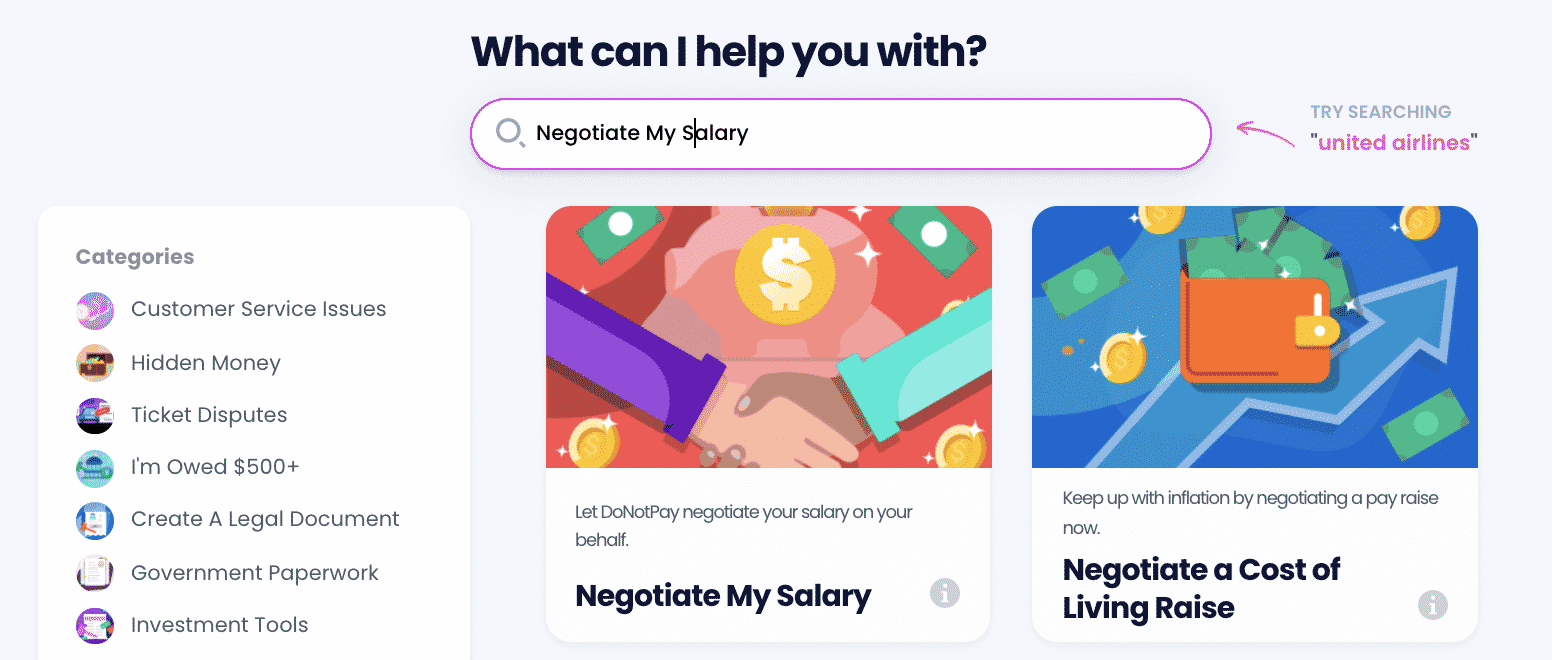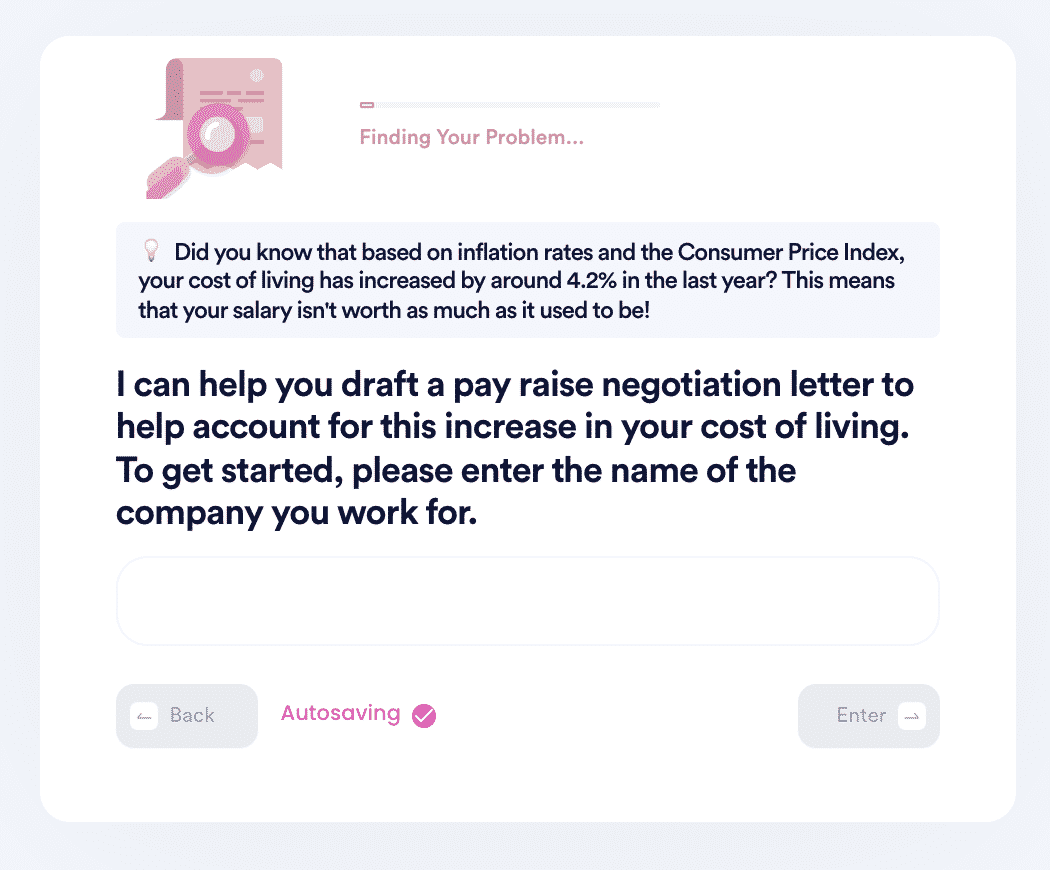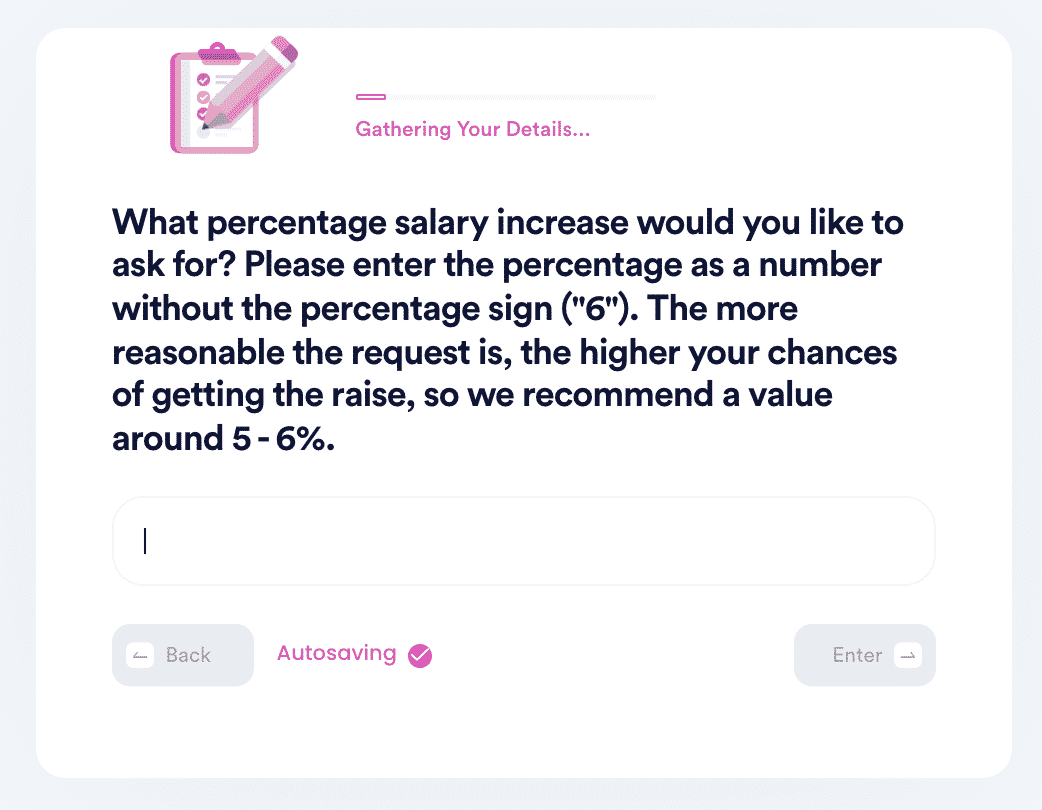Is It Time for You to Request a Raise? Determine a Reasonable Salary Negotiation Timeline
Are you struggling to make ends meet? As gas prices soar and the cost of inflation continues to rise, many people are considering asking for a raise. Knowing when to ask for a raise and understanding the is a skill that will follow you throughout your career. While it may seem intimidating, it never hurts to ask for better compensation in the workplace. Your employer may be open to giving you more money but will usually not offer a raise without a reasonable request.
Whether you are seeking a new role or have been at your job for a while, now may be the time to learn how to negotiate a salary increase. Our easy-to-use automated system can walk you through the entire process, making it quick and simple to start the conversation with a potential or existing employer.
Many workers don't know how to ask for a raise or even how much of a raise they should ask for. Some people are afraid to approach the subject and often get left making the same amount of money they received when hired. DoNotPay can give you the confidence to ask for the credit you deserve. Together, we can help you determine if now is the right time to negotiate your salary and help you understand how long salary negotiations can take.
Why You Should Ask For a Higher Salary
Aside from earning more money, negotiating your salary whether in person, through phone, mail, or via email, is always a good idea when considering the following factors:
-
Accepting a New Job Offer
Base salaries are never one size fits all, and there is always room for negotiation. While you may not get a new employer to agree to a significant increase in pay, a few thousand dollars more may be enough to agree to the terms of the new job offer.
First and foremost, you must determine how likely are you to negotiate your current salary if you received a competitive offer.
-
Inflation
With soaring costs at an all-time high, with no signs of stopping, now may be the perfect time to ask your current employer for a salary increase. Due to a 6.8% increase in the Consumer Price Index since 2021, your current compensation is worth 4.3% less than last year because of significant cost-of-living increases.
-
Job Qualifications
Perhaps your skills have improved since being hired, or you are overqualified for the role you are considering. Maybe you have taken on more job responsibilities. Whatever the reasoning, if you feel you are worth more than you are being paid, then, by all means, ask for a raise.
How Long Do Salary Negotiations Take?
Many employees don't know how often should you get a raise and aren't sure how to negotiate salary over the phone. Others wonder how long does it take a job to negotiate salary?
Remember, you are looking for a compromise that will make both parties happy, and there is no reason to create conflict. A reasonable involves the following steps:
| Do your research | Know what other workers in the same position are paid in your industry. |
| Timing is important | Wait for the perfect time to broach the subject, perhaps following the completion of a successful project or after receiving recognition for a job well done. |
| Send your request | Make either a verbal or written request for the salary increase, listing reasons why you feel you are deserving of more money. |
| Stay positive | Continue doing your job and remain positive while you wait for a response, which should take no longer than two weeks. |
| Denied? Try again | If your request is denied, you can ask again in another six months or consider looking for new employment. If the salary increase is approved, you should see the raise in your next paycheck. |
How Long Does Salary Negotiation Take On Your Own?
Salary negotiations do not have to be difficult if you are willing to have a professional conversation with your employer. Go into the meeting prepared and armed with the knowledge of why you think you are eligible for a salary increase. Use the following tactics when participating in a salary negotiation:
- Mention other job offers you may be considering
- Inform the employer of the average compensation workers in your role receive at other industries in your region
- Mention moving expenses, if applicable, when considering relocation
- Openly discuss the current economy and how inflation is affecting the value of the dollar
- Articulate your skills and qualifications
How to Negotiate a Salary Increase With the Help of DoNotPay Can
If you are not sure how to start a conversation with your employer or are uncomfortable writing a salary negotiation letter, DoNotPay can help. We will generate a comprehensive salary negotiation document on your behalf, giving you the confidence needed to work with your employer to increase the size of your paycheck. How to negotiate your salary using DoNotPay:
All you have to do is:
- Search “negotiate my salary” on DoNotPay.

- Enter the name of your company and the industry you work in, so we can find the right wage statistics for your role.

- Answer a series of questions regarding your qualifications and achievements, relocation expenses, and other job offers if applicable.

- Enter the new base salary you would like to request.

And that's it! Once the information is finalized, DoNotPay will generate an official salary negotiation letter that you can then email or present to your employer!
What Else Can DoNotPay Do?
In addition to helping you navigate a , DoNotPay can show you how to:
- Reduce Property Taxes
- Cancel a Subscription
- Fight Workplace Discrimination
- Ask for Chargebacks and Refunds
DoNotPay is the perfect solution for getting answers and putting more money in your pocket. The system is fast, easy, and successful, assisting you when you need it most.


